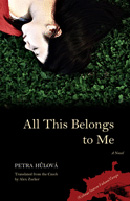
Tread the harsh, dusty Mongolian steppe with this nomadic family as they tend to the livestock and collect argal (firewood) to keep warm. They inhabit gers (padded felt tents), and men and women wear dels (long belted coats) for protection from the elements. On these plains, one experiences gloriously hot days where "the shine is so bright your eyes burn", and icy cold nights in the shadows of the mountains where, "...nothing [can] stop ... the starry deep-blue chill."
The narrative emanates from five women spanning three generations. Alta, the mother, got married early to escape the misery of an alcoholic father. She gave birth to four girls—two conceived illegitimately with foreigners (one Chinese, and one Russian)—while her husband was in the army. Unfortunately for Zaya and Nara, this community bears contempt for foreigners. So the girls, not "blessed" with Mongolian features, are ostracised. Though they share a strong bond, their childhood is fraught with sadness and loneliness and they never quite fit in, and never quite feel good enough.
Like their mother at their age, they wish to leave home quickly. Being a new generation, however, they don't dream of getting married; they fantasise about "real life" in the City. At 16, each of them leaves for Ulaanbaatar, the City of their dreams, which is rapidly filling up with individuals coming there everyday from the countryside in search of better prospects. We are privy to life in Ulaanbaatar, which confronts the same modern challenges faced by people the world over today, including the allure of money, clothes, status, etc. Both women "lose themselves" in order to cope.
The other two significant characters are Oyuna, the youngest sister, who opts to marry and remain in the steppe, and Dolgorma, Zaya's daughter, who was born and bred in the City. Says Dolgorma, "For my mother, those sandy gray open spaces were like staring into a mirror. Every little bump and dip meant something to her. To me, the steppe was just one huge slab of scaly dry dead skin." The distinct voices and perspectives across the generations and physical spaces are interesting.
Hůlová offers a penetrating look at relationships between mothers and daughters, and between
sisters. Great bonds, but also tension and antagonism, exist between the women as their secrets
and silences feed countless misunderstandings and misconceptions. The book is candid about the
devastating effects of alcoholism, prostitution, and social and racial alienation in the old
Mongolia in the mountain, and in the modern evolving Mongolia in the city. Notwithstanding some
odd and clumsy sentence structures in the translation, Hůlová's writing is rich, evocative and
really enjoyable.
Download this page as a pdf

Northwestern Univ. Press, paperback, 978081012443